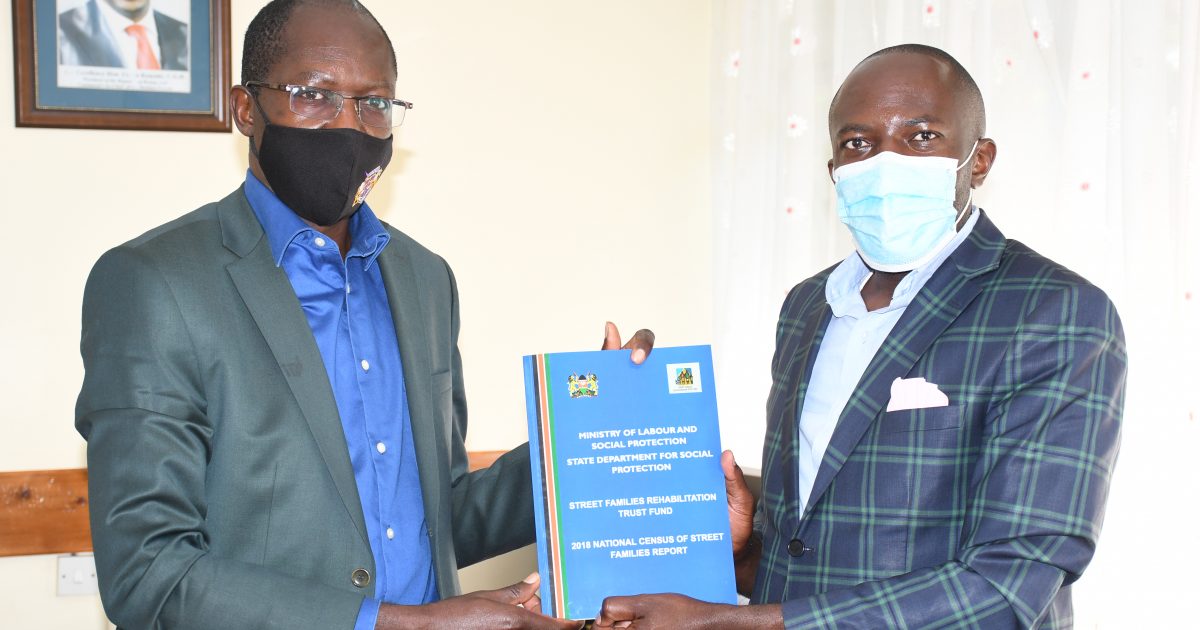The government through the Street Families Rehabilitation Trust Fund (SFRTF) is working on a policy to provide a coherent and sustainable framework for the rehabilitation of street families in the country.
SFRTF Trustee Alex Masibo said that the number of street families is on the increase and thus the policy aims at addressing the concern.
Speaking in Kapsabet Wednesday at a public participation forum on the draft national policy on rehabilitation of street families, Masibo said Kenya must free street families from the streets and it requires a multi sectoral approach to respond to their needs.
“The purpose of this policy is to provide a framework for coherent coordination, rescue, rehabilitate, reintegrate, resocialize as well as support prevention interventions”, explained Masibo.
He said according to the National Census of Street Families report of 2018, the number of people living and connected to the streets in Kenya was 46, 639.
“The counties with the highest concentrations of street persons were; Nairobi (15,337), Kisumu (2,746), Uasin Gishu (2,147), Nakuru (2,005) while Nandi had 151” the report said, adding, most of these street persons were males at 72 percent females at 28 percent, with a majority being youth at 45 percent, children at 34 percent and the older persons at 2 percent.

Masibo said the reasons for these persons going to the streets were varied including, fear of being reprimanded, lack of school fees, death of parents, mistreatment by relatives, domestic violence, mental illness, corporal punishment and also being born on the streets.
He added that during a deliberative stakeholders’ engagement undertaken in 19 selected counties in January this year, the push and pull factors that led to the occurrence of street families to be; poverty, family disintegration, loose social fabric, loss of parents and caregivers, drug and substance abuse and gender based violence.
Other factors are, poor parenting, tribal clashes, abandonment, landlessness, deviant behavior and indiscipline, child labour and exploitation where parents/guardians send children to the streets to beg and earn a living for the family among others.
While on the streets, the report says street families face a myriad of hardships, for instance; rejection from the society, lack of clean water, food, sanitation and health care, difficulty in acquisition of ID’s, sexual exploitation to mention but a few.
Going forward Masibo said, through the trust fund they will ensure street families programmes are well coordinated and there’s synergy between state and non-state actors.
“We will also form the county chapter to coordinate and domesticate the policy to ensure it is functional and it is addressing the street families concern”, he said.
The exercise which has been rolled out in 35 counties will be preceded by the validation of the policy early next year and the official launch in March 2021.
By Bethsheba Abuya





